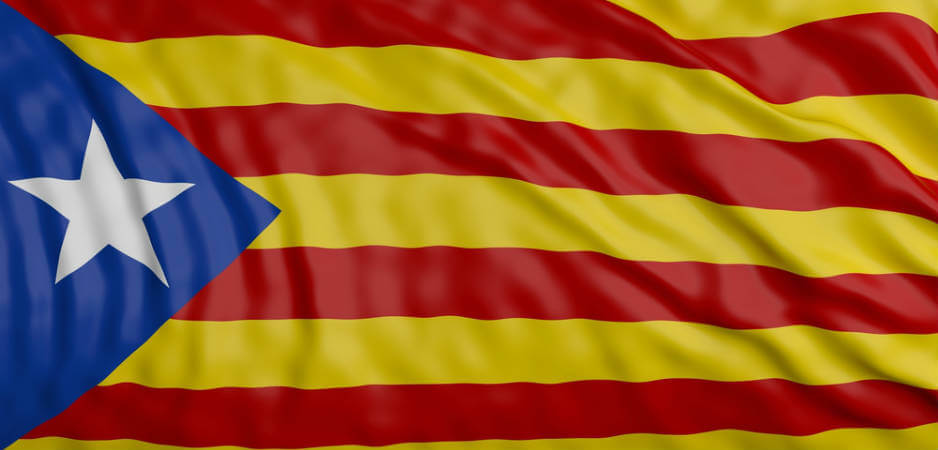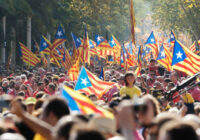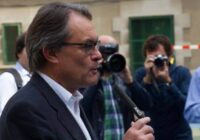In this guest edition of The Interview, Silvia Alvarez talks to former Catalan President Artur Mas.
With the controversial investiture debate — in which a new pro-independence government headed by Carles Puigdemont will be elected in the Catalan parliament — set to take place, former President Artur Mas’ role in Catalonia’s quest for independence comes sharply into focus. Mas’ popularity has won him five consecutive elections held in Catalonia from 2003 to 2015. He served as president of Catalonia’s Generalitat from 2010 until 2016, his tenure marked by increasing calls for the region’s independence from Spain. On January 9, 2018, Mas stepped aside as head of the Catalan European Democratic Party (PDeCAT), exactly as he had done two years earlier when he stood down from his role as president, having designated Catalonia’s current leader, Carles Puigdemont, as his successor.
Mas seems to be making a habit of leaving at the height of political success. In 2016, his departure came after his project, Together for Yes — a transversal ideology coalition that included the PDeCAT — won the first pro-independence majority in the Catalan parliament. His latest move followed an even greater victory with the same transversal formula, this time with the Together for Catalonia party, which led the pro-independence bloc victory of the December 2017 regional elections. The elections were seen as a plebiscite between two contending blocs: a vote for and against the restitution of Catalan self-government.
This renewed pro-independence mandate has not yet changed the position of the Spanish judiciary, which has two pacifist pro-independence leaders and two of Puigdemont’s cabinet ministers in custody pending trial on provocation charges. Puigdemont himself, along with four of his ministers, is in exile in Brussels. In this context, a collective of experts, academics, members of European Parliament, law professors, Nobel Prize winners and other influential figures have signed a petition in support of Catalans’ right to vote and denounced Spain’s reiterated violation of fundamental rights in Catalonia, now amply documented by international organizations such as Human Rights Watch.
For many in Catalonia, President Mas is the courageous head of government who led the peaceful pro-independence claim toward the non-binding consultation on independence in November 2014, for which he has been sentenced for two criminal offences now pending his appeal to the supreme court. In Catalonia’s struggle for independence, Mas is celebrated as the one who turned revolutionary a concept that should be the norm in every democracy — that a government listens to and acts on the demands of the people.
In this guest edition of The Interview, Silvia Alvarez talks to Artur Mas about Catalonia’s future within Europe and his political plans in the coming years.
Silvia Alvarez: Are you the father, the architect of the independence process?
Artur Mas: This process was born with the people. We need to go back in time to understand this properly. In July 2010, the constitutional court broke the faith of the Catalan people in the Spanish institutions with the sentence against the 2006 Statute of Autonomy of Catalonia. The statute, seen as Catalan law within the Spanish Constitution, had been agreed between the Catalan and Spanish parliaments and, as mandatory, ratified in a referendum by the Catalan people. This 2010 sentence, therefore, stripped the statute of 14 key articles, leaving Catalans with a legal framework that was not the one they had voted for. The day this sentence was made public, at least a million people demonstrated in Barcelona claiming “We are a nation, we decide.” Since then, the Spanish government has not given any answer to the popular cry, which has since mutated from a “right to decide” to a clear “claim for independence.”
Alvarez: In view of the December election results, can the independence movement claim a victory?
Mas: Absolutely, because even with the threats, the police violence on the day of the October 2017 referendum and the campaign against Catalan economy driven by the Spanish institutions, the percentage of support for independence has remained intact. It has done so with a major difference: The turnout increased from the 2015 elections, when it was 74.9%, to this last elections’ nearly 80%. A defining element is also that this sustained support for independence shows a power decrease of the most radical option within the pro-independence bloc, the Popular Unity Candidacy (CUP) party. This means that while a significant majority of Catalans bet in favor of independence, they have also probably understood that this cannot be done in a hurry, that we need time to reach our goal. We don’t have to give up the goal, but we must redirect our strategy.
Alvarez: Why then has the Catalan government seemingly chosen a unilateral stance?
Mas: It is the Spanish government that has chosen to act unilaterally, namely the ruling conservative Popular Party (PP) and Prime Minister Mariano Rajoy. He doesn’t listen, he doesn’t propose dialogue. He denies the reality. We have tried everything. I have tried before, and President Carles Puigdemont has done the same after me. We started with challenging the “new” 2010 statute; we asked for a better economic treatment similar to the Basque region; we demanded better infrastructure; we offered to negotiate the conditions of an agreed and binding referendum with the Spanish state. And we have always got the same answer: no.
They say that referendums divide society. That’s not true. It is the same misconception which claims that elections divide society because people chose an option. A referendum is the solution, a democratic count of the measure of support for a given option.
Alvarez: Can you confirm that you and four members of your executive have been barred from office, the property where you reside confiscated for having organized the November 2014 consultation, and that you personally have just been charged with rebellion for having publicly supported the October 2017 referendum?
Mas: My two years of disqualification from office have not yet entered into effect. The supreme court is still studying my appeal against the sentence. This was the result of a criminal trial for the November 2014 non-binding consultation on independence, when 2,3 million people went, peacefully, to the ballot box. A criminal court rejected the charges of “embezzlement.” But after this trial another Spanish institution, the court of accounts, decided to confiscate my home. And just a few days ago, the supreme court notified me that I’m being investigated again, now for giving my opinion to President Puigdemont — in my non-official capacity — when he asked me for advice on the October 1, 2017, referendum.
Alvarez: How would you explain to an international audience that the Spanish judiciary still holds two main Catalan pacifist leaders in custody pending trial?
Mas: It is an absolute aberration, an abuse. Both Jordi Sànchez and Jordi Cuixart led exemplary peaceful demonstrations from their respective platforms of organized civil society — the Catalan National Assembly and Omnium Cultural — and not a piece paper was left behind by the crowds. These two men are fathers and husbands too… Images of these peaceful mass rallies have been circulated worldwide. People around the world have seen this with their own eyes. If there ever was anybody wanting to diverge from this peaceful way, they would be invited to leave. Therefore, the only violence here has been exercised by the paramilitary police against peaceful voters on the day of the referendum, which has been also well documented and circulated live in international media.
Alvarez: Have the charges being pressed against you had anything to do with your recent stepping aside as the leader of your party?
Mas: Indeed they have. Any legal cause affects personal and familial contexts immensely. In the next few weeks, for instance, I will be making a statement related to the October 1 referendum in the supreme court. This is the same court that has my appeal for the November 9, 2014, consultation sentences still pending. An appeal was lodged nine months ago… At present time, I am still waiting to hear whether the court confirms the confiscation of my home.
Alvarez: International media has supported the December elections’ pro-independence mandate. However, support from the European Union has not been forthcoming. Has this disappointed you?
Mas: To a certain extent, yes. The EU remains a group of states rather than a federation of nations or a union of citizens. Sometimes it seems that interests are more important than principles or values. It should be different in the future. That said, I am pro-European. Europe is our home. And Catalan institutions are going to work hard to improve democracy and the defense of human rights within the European Union.
Alvarez: As a final thought, will you still be in politics from now on, and if so, will you continue to further the Catalan cause in international institutional and academic forums as you have done in the UK House of Lords and some leading universities?
Mas: I am firmly determined to be in politics in the future and help my country in its international projection. The Catalan cause must be known everywhere as an example of real democracy and the kind of processes driven by people.
The views expressed in this article are the author’s own and do not necessarily reflect Fair Observer’s editorial policy.
Photo Credit: rawf8 / Shutterstock.com
Support Fair Observer
We rely on your support for our independence, diversity and quality.
For more than 10 years, Fair Observer has been free, fair and independent. No billionaire owns us, no advertisers control us. We are a reader-supported nonprofit. Unlike many other publications, we keep our content free for readers regardless of where they live or whether they can afford to pay. We have no paywalls and no ads.
In the post-truth era of fake news, echo chambers and filter bubbles, we publish a plurality of perspectives from around the world. Anyone can publish with us, but everyone goes through a rigorous editorial process. So, you get fact-checked, well-reasoned content instead of noise.
We publish 2,500+ voices from 90+ countries. We also conduct education and training programs
on subjects ranging from digital media and journalism to writing and critical thinking. This
doesn’t come cheap. Servers, editors, trainers and web developers cost
money.
Please consider supporting us on a regular basis as a recurring donor or a
sustaining member.
Will you support FO’s journalism?
We rely on your support for our independence, diversity and quality.






